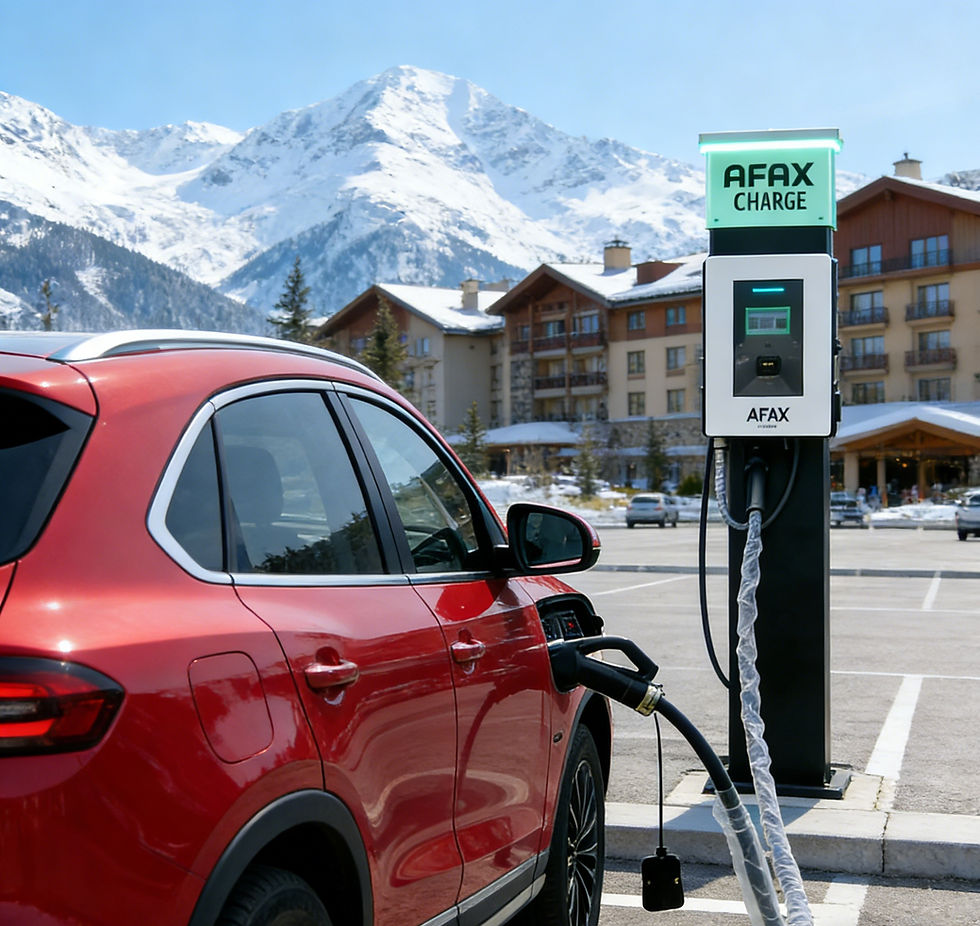EV Charger Installation Requirements
- afaxpower5
- Aug 23, 2024
- 2 min read
As electric vehicles (EVs) become increasingly popular, the demand for EV charging infrastructure continues to grow. Installing an EV charger requires careful planning and adherence to specific requirements to ensure safety, efficiency, and compliance with regulations. This article outlines the key installation requirements for EV chargers.

Electrical Capacity Assessment
Before installation, it's crucial to assess the electrical capacity of the property. A qualified electrician should evaluate the existing electrical system to determine if it can support the additional load of an EV charger. This may involve upgrading the electrical panel or installing a dedicated circuit.
Permitting and Regulations
Obtaining the necessary permits is essential before beginning the installation process. Local building codes and regulations vary, so it's important to consult with local authorities to ensure compliance. Some areas may require specific certifications or inspections for EV charger installations.
Charger Type Selection
Choose the appropriate charger type based on the EV model and charging needs. Level 2 chargers are commonly installed in residential and commercial settings, while DC fast chargers are typically used for public charging stations. Ensure compatibility between the charger and the vehicle.
Location and Accessibility
Select an appropriate location for the charger that is easily accessible and protected from the elements. Consider factors such as proximity to the parking space, cable length, and potential obstructions. For public installations, ensure compliance with ADA accessibility requirements.
Wiring and Conduit Installation
Proper wiring is critical for safe and efficient charging. Use appropriately sized cables and conduits that meet local electrical codes. Ensure proper grounding and protection against moisture and physical damage.
Safety Features
Install necessary safety features such as ground fault circuit interrupters (GFCIs) and surge protectors. These help prevent electrical hazards and protect both the charger and the vehicle from power surges.
Network Connectivity
For smart chargers, ensure proper network connectivity for remote monitoring and management. This may involve setting up Wi-Fi or cellular connections, depending on the charger's capabilities.
Testing and Certification
After installation, thorough testing should be conducted to verify proper functionality and safety. Many jurisdictions require a final inspection and certification by a licensed electrician or inspector before the charger can be put into use.
By adhering to these installation requirements, property owners and businesses can ensure safe and efficient EV charging infrastructure. As the EV market continues to grow, proper installation practices will play a crucial role in supporting widespread adoption of electric vehicles.




If you’re planning to install an EV charger at home or in your workplace, it’s important to understand the safety and electrical requirements involved. A proper installation ensures your charger runs efficiently without overloading your electrical system. Since EV chargers require dedicated circuits, correct wiring, and compliance with local electrical codes, it’s always best to leave the job to a licensed professional.
For reliable help, you can reach out to website Electrician Singapore. They offer expert EV charger installation services and a full range of electrical solutions across Singapore. Their experienced team ensures that every installation meets safety standards while providing you with a seamless charging experience.